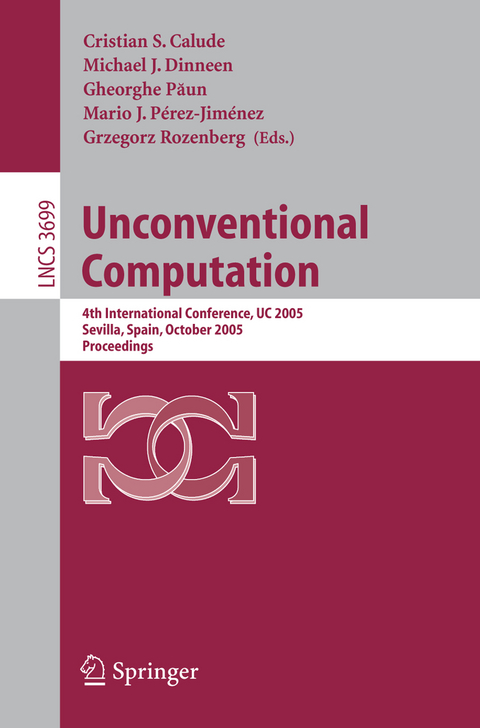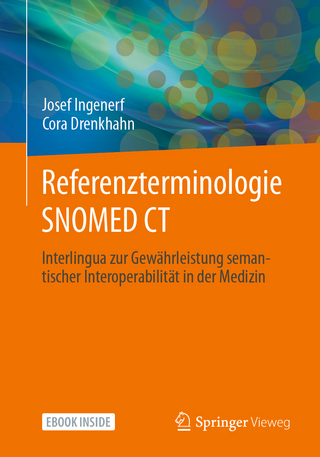
Unconventional Computation
Springer Berlin (Verlag)
978-3-540-29100-8 (ISBN)
Invited Papers.- Using Genetic Algorithms to Evolve Behavior in Cellular Automata.- Quantum Searching Amidst Uncertainty.- Logic Functions of the Genomic Cis-regulatory Code.- Structural DNA Nanotechnology: Molecular Construction and Computation.- Natural Inspiration for Artificial Adaptivity: Some Neurocomputing Experiences in Robotics.- Regular Papers.- On Self-assembly in Population P Systems.- A Web-Based P Systems Simulator and Its Parallelization.- Communication Complexity as a Principle of Quantum Mechanics.- On Model-Checking of P Systems.- Looking for Simple Common Schemes to Design Recognizer P Systems with Active Membranes That Solve Numerical Decision Problems.- P Systems with Active Membranes, Without Polarizations and Without Dissolution: A Characterization of P.- Discrete State Transition Systems on Continuous Space-Time: A Theoretical Model for Amorphous Computing.- On Reversible Cellular Automata with Finite Cell Array.- A Computational Model for Self-assembling Flexible Tiles.- On Formulations of Firing Squad Synchronization Problems.- Computation in One-Dimensional Piecewise Maps and Planar Pseudo-Billiard Systems.- On the Importance of Parallelism for Quantum Computation and the Concept of a Universal Computer.- On Computational Complexity of Counting Fixed Points in Symmetric Boolean Graph Automata.- A New Sibling of BQP.- A Twelve-State Optimum-Time Synchronization Algorithm for Two-Dimensional Rectangular Cellular Arrays.- Computing by Self-reproduction: Autopoietic Automata.- Lower Bounds on the Computational Power of an Optical Model of Computation.- On Counterfactual Computation.
| Erscheint lt. Verlag | 19.9.2005 |
|---|---|
| Reihe/Serie | Lecture Notes in Computer Science | Theoretical Computer Science and General Issues |
| Zusatzinfo | XI, 267 p. |
| Verlagsort | Berlin |
| Sprache | englisch |
| Maße | 155 x 235 mm |
| Gewicht | 433 g |
| Themenwelt | Informatik ► Theorie / Studium ► Algorithmen |
| Informatik ► Weitere Themen ► Bioinformatik | |
| Schlagworte | algorithm • Algorithm analysis and problem complexity • algorithms • amorphous computing • Automata • autopoietic automata • cellular computing • Complexity • Computational Models • Computer • Computing Theory • DNA computing • Genetic algorithms • Genome • Logic • Membrane computing • molecular computing • Natural Computing • Quantum Computing • Robotics • theoretical computer scien • theoretical computer science • Theoretical Informatics • Theory of Computation |
| ISBN-10 | 3-540-29100-8 / 3540291008 |
| ISBN-13 | 978-3-540-29100-8 / 9783540291008 |
| Zustand | Neuware |
| Haben Sie eine Frage zum Produkt? |
aus dem Bereich


